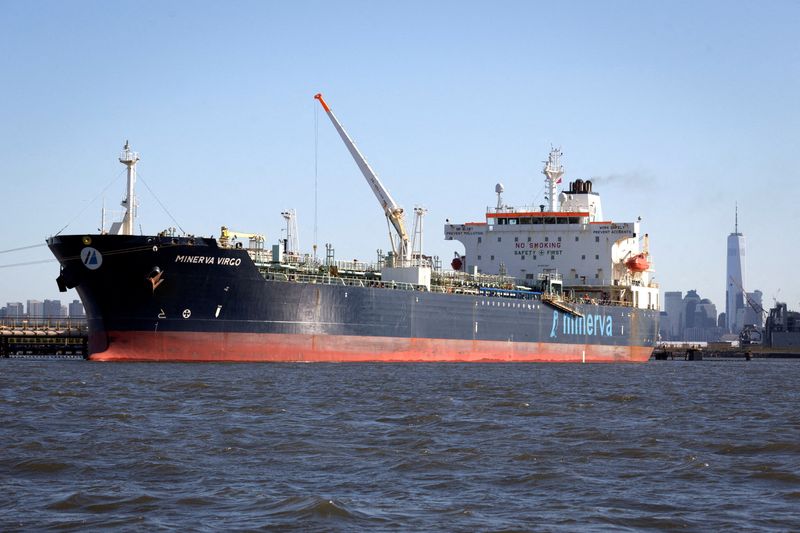By Muyu Xu
SINGAPORE (Reuters) - A U.S. Treasury official has ruled out secondary sanctions to enforce a price cap mechanism on Russian oil exports despite a proposal last week by U.S. senators.
Democratic and Republican senators last week proposed that U.S. President Joe Biden's administration use secondary sanctions on international banks to strengthen the price cap aimed at capping Russia's oil revenues while minimising the impact on global markets and prices.
"We don't think secondary sanctions are needed," Catherine Wolfram, deputy assistant secretary for climate and energy economics at the U.S. Treasury, told reporters on the sidelines of the APPEC 2022 conference.
"We have all the service providers that are part of the coalition and each country kind of brings in some sanctions."
The Group of Seven (G7) nations expect companies in the supply chain from brokers to banks, insurers and shipping firms to monitor Russian oil trades and report irregularities. Industry executives and analysts have raised questions about the feasibility of the oil price cap and its enforcement.
Wolfram said the authorities will release full guidance on how the Russian oil price cap will be implemented before European Union sanctions on Russian crude exports take effect on Dec. 5.
U.S. officials have said they will consider Russia's marginal production cost and historical prices before the Ukraine war when setting the price to encourage Russia to continue production.
The price cap will apply to Russian crude oil in every trade, but not refined products that have been produced from Russian crude, Wolfram said.
"Once oil is substantially transformed, then price cap no longer applies," she said.
If traders benefit from trading these products, it still means that the revenue does not go to Moscow, she added.
Wolfram added that she does not expect China and India to join the coalition formally at the government level as it would not be in their self interest, but said a number of Indian and Chinese companies would find it in their economic interest to continue using trade services provided by G7 countries after the price cap is in place.

"We have talked to some Indian importers who view using Russian insurance as more costly than using UK or Norwegian insurance," she said.
"The (U.S.) administration is in close contact with OPEC, who doesn't like volatility and the idea of big amounts of Russian oil coming off the market, and emphasises that the price cap will only apply to Russia."